An Artist at Heart
Emory alum Jonathan Demar reflects on his lifelong passion for theater and shares how he went from being a child actor to a Tony Award-winning producer.
Story by Roger Slavens
Portraits by Andy Henderson
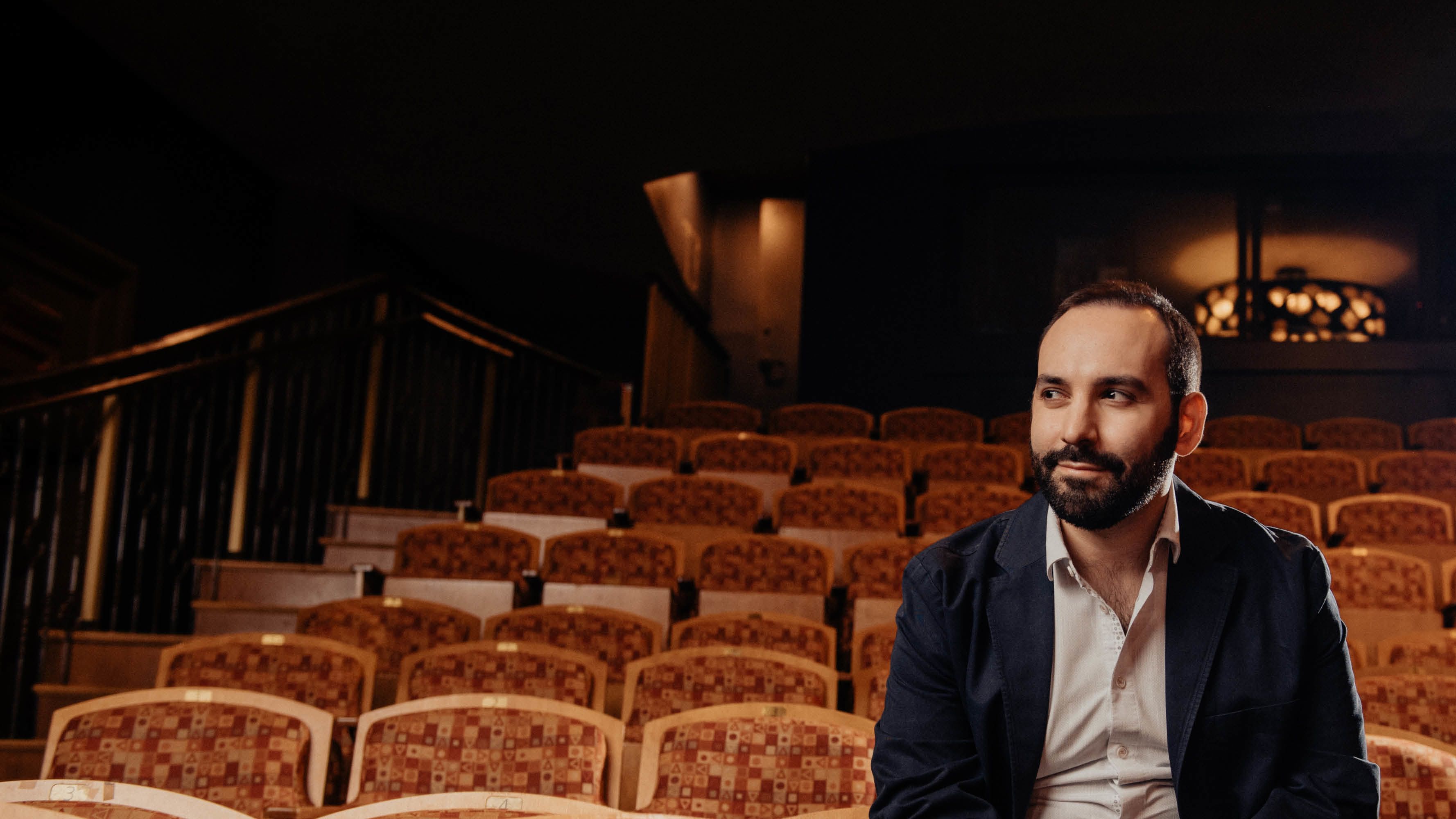
Update: Three of the Broadway shows Jonathan Demar co-produced this past year won top honors at the 2024 Tony Awards, including Stereophonic (Best Play), Merrily We Roll Along (Best Revival of a Musical) and Appropriate (Best Revival of a Play), making him now a four-time Tony Award winner.
Jonathan Demar’s love affair with the theater began when he had to write and perform a jingle for a second-grade project. “I was just seven years old and was fortunate to have one of those angelic-sounding soprano voices,” says Demar 13C. “My homeroom teacher told me I should be a singer. That’s all it took — I was hooked. One small moment of praise catapulted me toward a lifelong career on and off stage.”
A born and raised New Yorker, who spent most of his early years in Westchester County just minutes north of New York City and the glittering lights of Broadway, Demar had more opportunities than most to pursue his newfound passion. His parents, both physicians, supported him fully as he set his sights on the performing life. They drove him into the big city for all his auditions and lessons. And they applauded all his early successes.
His career started off modestly as the youngest member of a Westchester County Christmas caroling group. A few years later, however, he made the New York City Opera Children’s Chorus and enrolled at the prestigious Professional Children’s School, an Upper West Side college prep academy geared for young performers working as actors, singers and dancers.
“In addition to school, I had a voice teacher, a dance teacher and an acting teacher to help me hone my craft,” Demar says. “I watched as many shows as I could and I auditioned my heart out. I wanted to do everything I could to make it to Broadway.”

That holiday season, Demar was featured on a Christmas album with the Sugar Beats, a group that recorded children’s versions of popular songs — a decade or so before the Kidz Bop craze. He also made his New York City acting debut that year, landing the prized role of Tiny Tim in an off-Broadway musical comedy called “A Gilbert and Sullivan Christmas Carol” at the Jose Quintaro Theatre. One reviewer called his performance “adorable.”
The following year, Demar made his Broadway debut at Madison Square Garden in yet another musical adaptation of Charles Dickens’ classic yuletide story — this one famously choreographed by phenom Susan Stroman early in her career. It also saw him co-starring with Academy Award–winner F. Murray Abraham, both of them as Scrooge, with Demar playing the eight-year-old version of the character.
“Even though I was still just a kid, believe it or not, I long had wanted to be in a Susan Stroman show,” he says. “And here I was at age 12, living my dream being in a rehearsal room with her and also acting on stage with a master thespian. It was an experience I will never forget.”
At the same time his star was rising, Demar remembers that the musical adaptation of the Mel Brooks comedy film “The Producers” was the talk of New York City. Directed and choreographed by Stroman, the show — which centered on Broadway producers putting on the worst musical possible to defraud investors — earned widespread critical and audience acclaim, dominated the Tony Awards, ran for 2,502 performances, spawned a movie adaptation and kicked off national tours.
“It was truly a magical time to be involved in theater and to be in New York City,” Demar says.
His younger self had no idea then that his path would diverge from acting aspirations to becoming a theater producer — a legit one, unlike those in “The Producers” — with multiple smash hits to his credit.
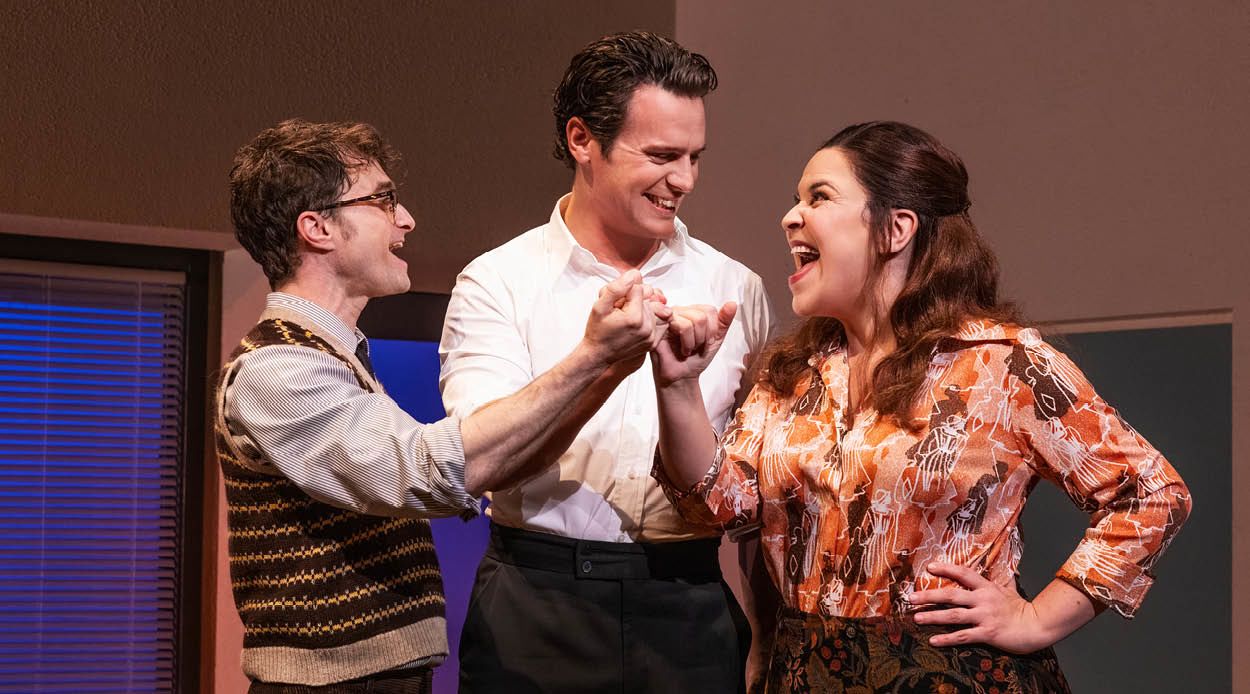
Daniel Radcliffe (left), Jonathan Groff and Lindsay Mendez star in the current revival of the Stephen Sondheim musical "Merrily We Roll Along".
Daniel Radcliffe (left), Jonathan Groff and Lindsay Mendez star in the current revival of the Stephen Sondheim musical "Merrily We Roll Along".
Demar helped produce his first Broadway play at age 23, almost straight out of Emory. And now, just 10 years later, he’s racked up a string of major successes as a co-producer.
He has four productions on Broadway this season: an adaptation of Stephen Sondheim’s “Merrily We Roll Along,” starring Daniel Radcliffe (“Harry Potter”) and Jonathan Groff (“Hamilton” and “Mindhunter”), the Henrik Ibsen morality play “An Enemy of the People” featuring Jeremy Strong (“Succession”), the 1970s rock-themed play “Stereophonic” and the family drama “Appropriate” starring Sarah Paulson (“American Horror Story).”
His biggest success so far, however, comes from being part of the team that brought the groundbreaking musical “Hadestown” to Broadway, for which he won a Tony Award.
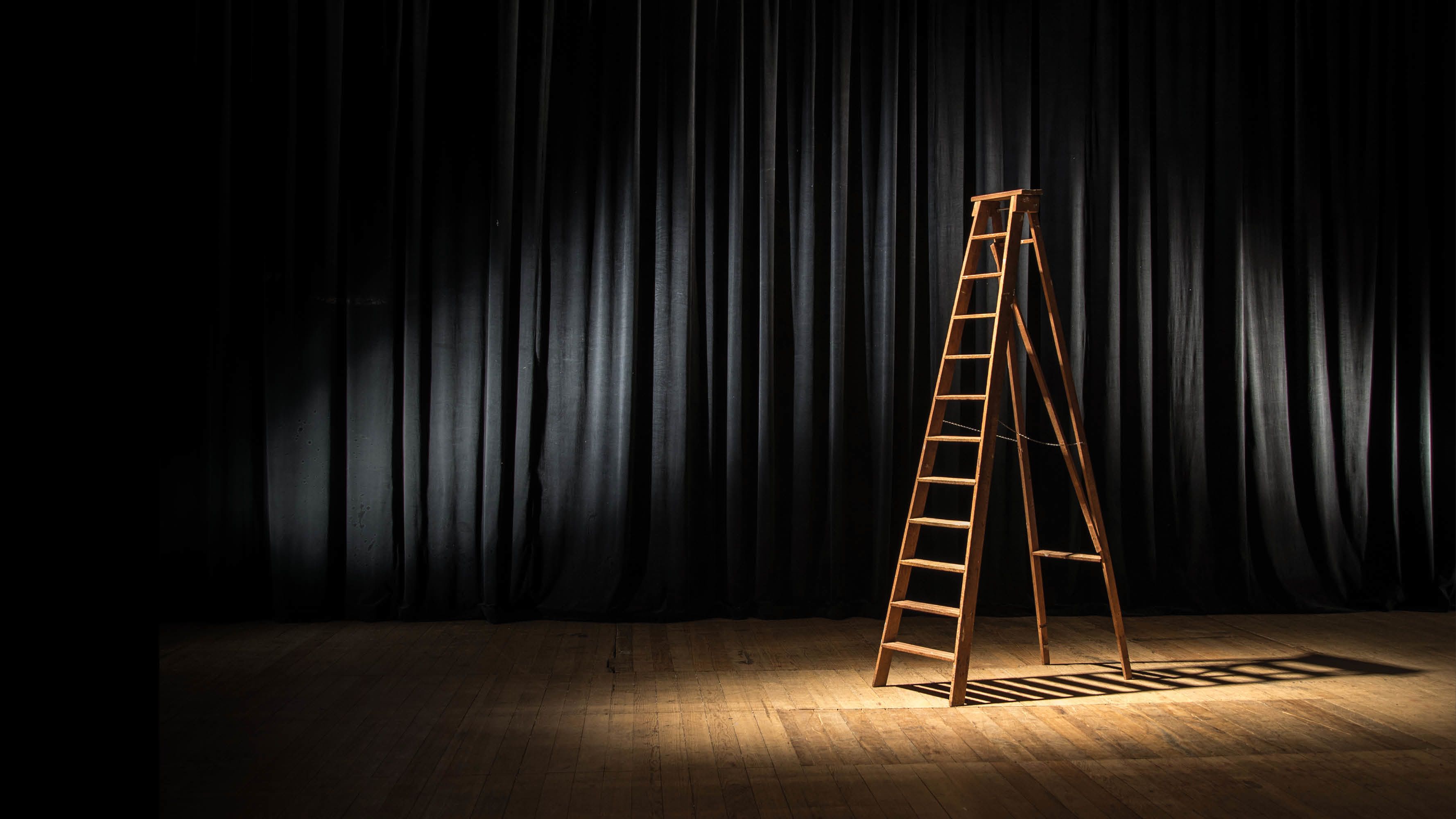
SETTING THE STAGE FOR A NEW ROLE
While Demar was forging his way as an actor and singer, he was intrigued by the hustle and bustle happening backstage during these productions. “I knew what my role as a performer was, but there was so much intensity and activity going on behind the scenes that I didn’t fully understand,” he says. “I found it fascinating and I tried to find out as much about it as I could.”
A few years after his career as a child actor had taken off, something happened to Demar — an inevitable twist of biological fate — that would alter his path.
“I was 14 years old, at a final callback for a Broadway show, and my voice literally changed right in the middle of the audition,” he says. “In that instant, I was done being that boy soprano who got tons of auditions and now I was going to have to reinvent myself. … I kept taking classes and worked hard to book parts — but I never have received the attention that I did when I had that voice.”
Demar knew his destiny still resided on Broadway, but he didn’t know what role he would ultimately play. “My parents, though they were always very supportive of my acting, had always encouraged me to explore my options as I was growing up,” Demar says. “I think they knew life would throw me curveballs and they wanted me to keep my eyes open for other ways to follow my dreams.”
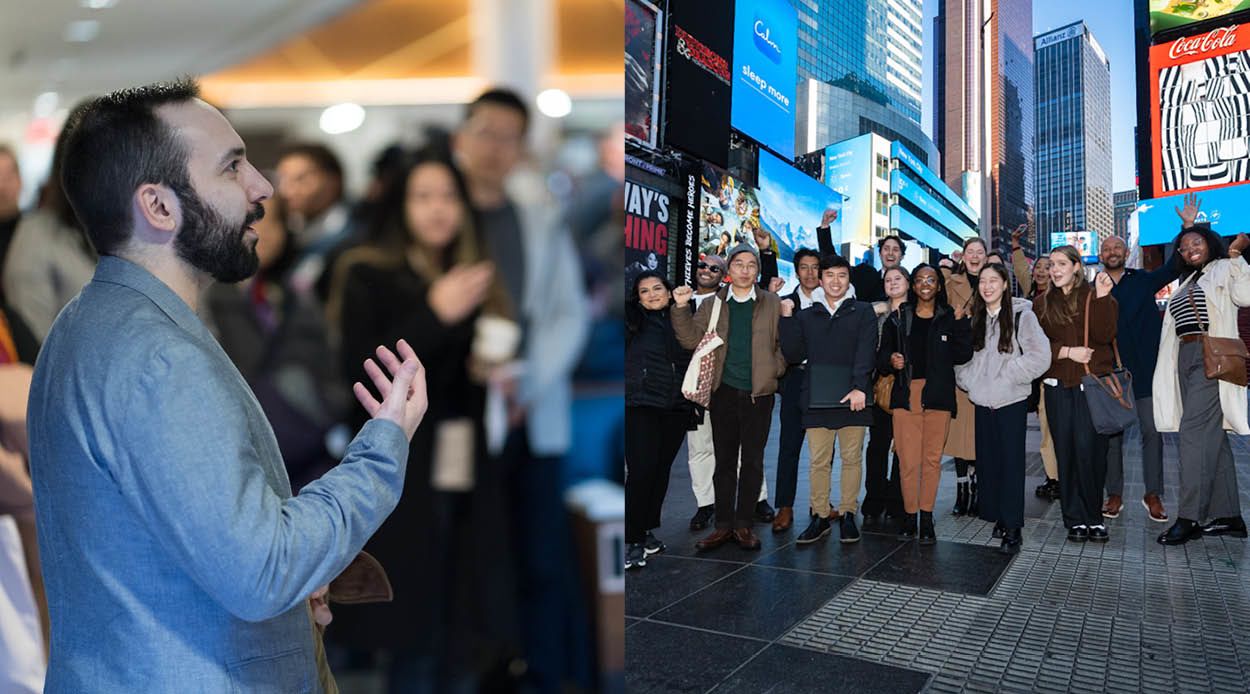
Demar (left) welcomed a group of Emory students visiting New York City on a visit via the Pathways Center’s first Career Trek. He discussed his work as a producer before the students attended a performance of “Hadestown.”
Demar (left) welcomed a group of Emory students visiting New York City on a visit via the Pathways Center’s first Career Trek. He discussed his work as a producer before the students attended a performance of “Hadestown.”
One of those dreams was to purse a college education. When it came to choosing a school, Demar knew he wanted a fresh start, preferably outside of his New York City bubble. He’d heard a lot of great things about the liberal arts education at Emory, and he appreciated that the university had a great reputation for inspiring students to find new passions.
At Emory, Demar turned his artistic ambitions to music composition. He learned how to write music while also singing in choir and taking voice lessons. But he dabbled in journalism and business. He joined Sigma Phi Epsilon fraternity and made lifelong friendships. He took an interest in political activism.
All in all, Demar fully embraced college life and his newfound independence.
“I put my life as a performer, for the most part, on the backseat while I investigated what else I could do. Emory opened up my mind and my world,” he says.
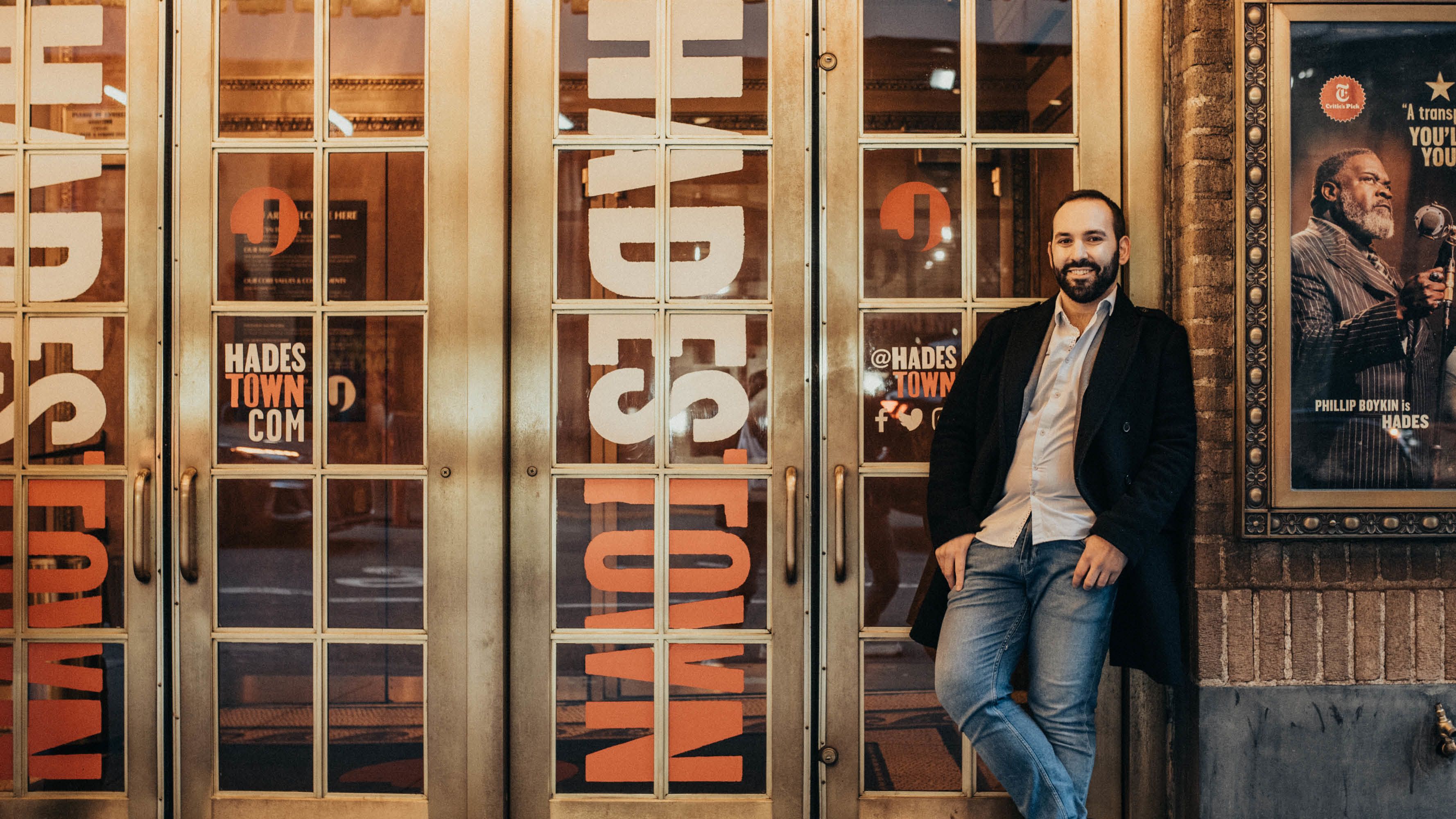
A CRASH COURSE IN PRODUCING
After graduation, Demar moved back to New York City and tried to apply all that he learned at Emory into finding his way back to the bright lights of Broadway. He started taking acting lessons again and auditioned every chance he had.
More important, he reconnected with old friends he had made in the industry and started networking to make new ones. His contacts urged Demar to look around for opportunities to become an associate for a show.
His degree, years of theater experience and youthful personality, they said, would give him a leg up. After months of searching, he was invited by a colleague to co-produce the play “The Velocity of Autumn,” which was moving from a successful run in Washington, D.C., to Broadway, and starred Academy Award–winning actress Estelle Parsons (“Bonnie and Clyde”).
“It was a compelling script, the play had great talent attached and I really thought it could win awards,” Demar notes. “However, I had no idea what I was doing. I just leaped in headfirst and learned on the fly. Never would I have imagined that I’d be helping to produce a Broadway show right out of college.”
His role as co-producer turned out to be a crash course in raising capital. “It was kind of insane that I was being allowed to do it,” he says. “I really struggled at first — I was asking anyone and everyone to invest in the show. Luckily, I learned how to identify the right investors and make the right pitches. It took a long time and a lot of patience, but I got better at it every day.”
Unfortunately, “The Velocity of Autumn,” which debuted in April 2014, turned out to be something of a flop with audiences. Demar was worried the people who had invested in it would be upset with him. He was also anxious that he wouldn’t be able to find other opportunities to produce more shows. It turned out quite the opposite.
“My investors at the time not only believed in the play, but truly believed in me,” he says. “That was what mattered most to them, not that they needed to make their money back in return.”
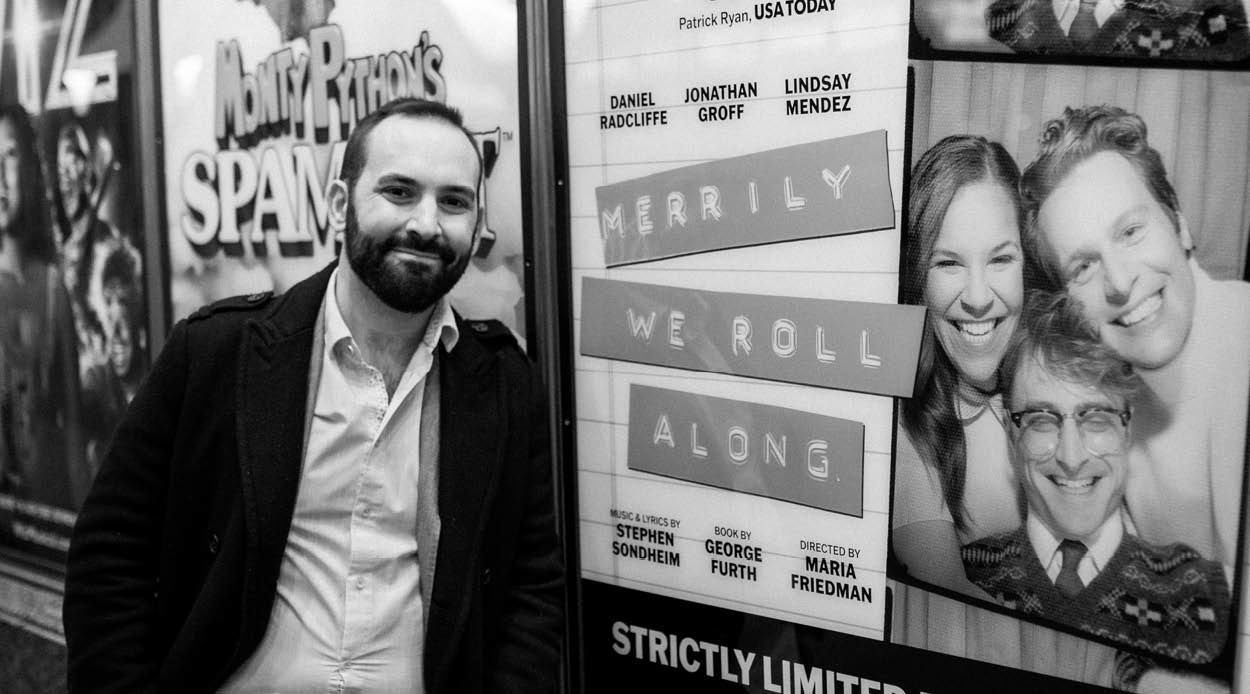
This taught him the valuable lesson that putting on a Broadway show was like building a family. “That’s the way I look at raising capital for a production,” Demar says. “You find people that have the same passions that you do and some financial means and interest, and then you put them together with investment opportunities to bring them along on the ride and become part of your theater family.”
Moving forward, Demar became more selective about the shows he considered and the people with whom he chose to work.
He helped raise money for a revival of the play “The Cripple of Inishmaan” that starred Daniel Radcliffe, who was building up a theater pedigree following his run playing Harry Potter on film. Demar also served as associate producer of “Love Letters,” a romantic comedy featuring a rotating cast of Mia Farrow, Brian Dennehy, Carol Burnett, Alan Alda and Candice Bergen.
“I started looking not only for shows that intrigued me and might also attract audiences, but also ones that stood out from the rest, that were special,” Demar says. “Often it came down to the people involved, the lead producers, the writers, the actors, the friendships and connections I made along my way.”
He also wasn’t afraid to stretch his horizons. In 2015, Demar switched his sights from Broadway to London when he was asked to join a colleague in co-producing the revival of the musical “Gypsy” on the West End. After that run, he shook things up by working for a startup, leading national sales for an audition-scheduling app called CastMe.
He then returned to theater, co-producing the Off-Broadway drama “Church and State,” which took a serious look at the aftermath of a mass shooting. “There’s something special about a show that has a message that will leave audiences thinking and talking about it long after they watch a performance,” he says.
In 2018, after five years spent learning the ropes of theater producing, Demar took his career to the next level when he joined the groundbreaking musical “Hadestown” as it made its move to Broadway.


What Does a Producer Produce?
In the bustling world of theater, the true driving force behind a hit show frequently remains hidden behind the curtains. Producers play a starring, yet often invisible role in bringing our favorite dramas, comedies and musicals to life on stage, rarely eliciting the applause that actors and singers receive.
“A theater production is sort of an alchemy of so many things coming together — the script, the music, the actors, the director, the venue, the stage crew and all the logistics involved,” says Tony Award-winning producer Jonathan Demar 13C. “A producer’s job, as I see it, is to help organize it all while being a counselor, a cheerleader and a coach to many different people and personalities. The ultimate goal is to create something bigger than the sum of its parts: a piece of art.”
To better understand the impact that producers have on a musical or play, here’s a quick look at the different types of producers and the wide variety of responsibilities they hold.
Lead Producer
The lead producer is often the visionary behind the operation, responsible for overseeing all aspects of the project from inception to completion. They identify and sometimes help conceptualize the show, assemble the creative team, secure funding and make key decisions regarding the artistic direction and marketing strategy. The lead producer serves as the driving force behind the production, ensuring its cohesion and success.
Co-Producer
Co-producers work alongside the lead producer, providing additional support and resources to bring the production to fruition. They most often play a critical role in raising capital and awareness, and may support the lead producer in giving input into other aspects of the show as needed. Co-producers often leverage their networks and expertise to enhance the project's visibility and viability.
Executive Producer
Executive producers are typically “hired hand,” says Demar, helping the lead producer put the show together. They may oversee budgeting, financing and contractual negotiations, as well as some artistic decisions, ensuring that the production meets all its goals.
Associate Producer
A more supportive role, associate producers assist the lead producer and other producers with specific duties that can vary widely depending on the production. They are often employed to coordinate logistics, manage administrative responsibilities and complete tasks that pop up during day-to-day operations.
Despite their nuanced differences, all theater producers share a common goal: to shepherd a project from conception to finished product.

ONE HELL OF A SHOW
The story of “Hadestown” demonstrates just how long it can take to make a smash hit. Singer-songwriter Anaïs Mitchell first conceived the idea in 2004, channeling the Greek myth of Orpheus and Eurydice and the depths of the underworld into a song cycle of love and tragedy.
Mitchell produced the first version of the musical in her home state of Vermont in 2006, and it received local acclaim and a small New England tour. In 2010, she turned it into a concept album featuring guest vocalists Justin Vernon of Bon Iver and Ani DiFranco. She performed it on a national tour, and the storytelling and music resonated with listeners worldwide. Six years later, she brought it to the New York Theatre Workshop, where director Rachel Chavkin helped revise and expand “Hadestown” into an immersive musical experience.
Critics and audiences raved about this Off-Broadway production of the show, and Demar was among those who saw it at this point in its journey. “I was blown away by the show,” he says. “It was like nothing I had seen before.”
Demar knew he wanted to be involved in taking the musical to greater heights. “I thought to myself that there was no way I wasn’t going to be part of this show,” Demar says. “I could just tell in my heart that there was something really special about it.”
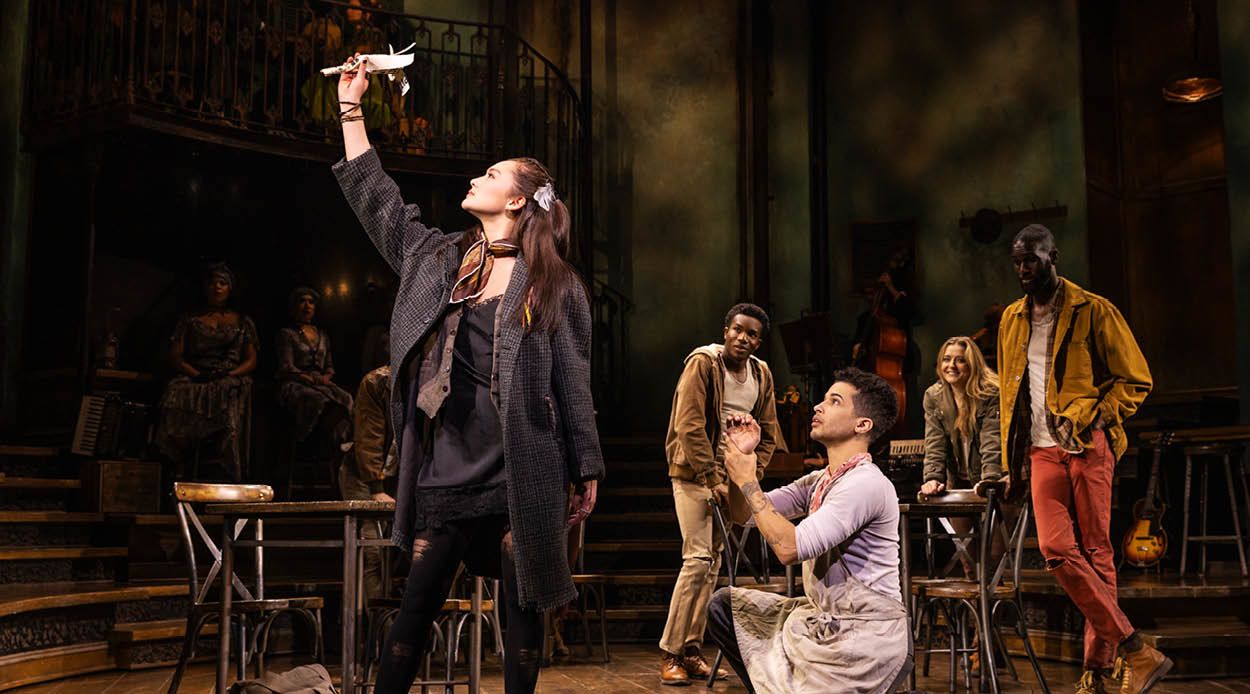
It took nearly 15 years for the musical "Hadestown" to reach the Broadway stage. The show was a smash, winning eight Tony Awards and still continuing its run five years since it debuted.
It took nearly 15 years for the musical "Hadestown" to reach the Broadway stage. The show was a smash, winning eight Tony Awards and still continuing its run five years since it debuted.
Industry veteran Mara Isaacs initally consulted on “Hadestown” in its beginnings and eventually took the reigns as lead producer role in shepherding the musical. She’s the one who gave Demar the opportunity to join the show as a co-producer, eager to tap into his talents.
“I had a lovely lunch with Mara as she mapped out her vision for the show,” he says. “Not only was I all in, but I already knew someone I could bring in as an investor in the show right away someone who had seen it at the New York Theater Workshop and loved it as much as I did.”
Demar kept reaching out to his network and raising capital.
With ambitions for Broadway, “Hadestown” got a critical tune-up at the Citadel Theater in Edmonton, Canada in 2017.
A major milestone was when the show finally landed a venue, the Walter Kerr Theatre (which has since hosted it for the past five years). “Through the process, I got a view of how well-run these large-scale productions are and all the organization and small details that go into getting them ready,” Demar says.
A trip across the pond to the National Theater in London, where it made a big splash with audiences, served as a dress rehearsal in fall 2018. A few months later, “Hadestown” was deemed ready for the world’s ultimate stage and, in April 2019, finally made its Broadway debut after nearly 15 years of development.
The show proved to be a triumph, drawing record-setting crowds on its way to becoming one of the top-grossing theater musicals of all time. “Hadestown” spawned tours in the United States and abroad and recently made its debut in London’s West End this spring. Moreover, the show is still filling seats on Broadway today.
“I am just so happy I could be part of this caravan,” Demar says. “It’s been a long, crazy, amazing ride. It was particularly rewarding for me because I got to learn and be closely in touch with Mara throughout the show’s development.”
One of those rewards was a glittering trophy signifying that his work ranked among the best of the best in the industry that year. On June 19, 2019, “Hadestown” won eight Tony Awards, including one for best musical.
“Standing on the stage at Radio City Music Hall with everyone from the show was one of the best moments in my life,” Demar says. “There was no greater feeling than being up there and celebrating that collective success,” Demar says.

SUCCESS BEGETS SUCCESS
At the same time Demar was co-producing “Hadestown,” he was also working on a number of other shows — such is the “gig” nature of the industry.
The musical “Be More Chill,” which has a similarly long road to development, launched on Broadway a month before “Hadestown” and scored big with younger audiences. Demar is proud of the show’s success, which prompted subsequent runs of “Be More Chill” in London, Japan and the Netherlands. It’s also been optioned for a movie.

Also in 2019, he helped bring a revival of the musical “9 to 5,” originally adapted from the 1980 movie starring Dolly Parton, to London’s West End. After a successful run in London, it launched a tour of the United Kingdom two years later.
In addition, he assisted in producing the U.S. tour of John Leguizamo’s “Latin History for Morons” and a U.K. tour of the musical adaptation of “Amelie.”
But after an incredibly busy, productive year, 2020 proved to be the polar opposite for Demar, as COVID-19 shut everything down for months. “It was a tough time for everyone in the industry, but you have to put it in perspective when it was so tragic for the millions across the globe who died or lost loved ones,” he says.
However, the pandemic didn’t derail Demar’s professional momentum after theaters opened back up in 2021. “Hadestown” and his other successes led to a slew of opportunities as new productions sought him out because of his skills, experience and valuable network of investors he’s cultivated.
In 2022, he worked on “POTUS: The Musical,” reuniting with director Susan Stroman, as well as the Broadway revival of “Funny Girl.” The following year brought “The Cottage,” a new comedy starring Eric McCormack (“Will and Grace”) and directed by Jason Alexander (“Seinfeld”), as well as “Gutenberg! The Musical!”
NOW PLAYING AND NEXT UP
Demar’s biggest success of late has been the revival of Sondheim’s “Merrily We Roll Along,” which was originally slated to end in January 2024 but whose run has been extended twice into this summer. The musical has received widespread critical acclaim, drawing huge audience interest given its star-studded cast led by Radcliffe and Groff, and recently recouped its investments.
In March 2024, a production of Ibsen’s “An Enemy of the People” opened to rave reviews to kick off a limited, 16-week run on Broadway. “It was a no-brainer to take on this play, not just because of Jeremy [Strong] starring but also because it’s a great story. We haven’t seen a production of this drama in a long time, and it feels very relatable given the current political climate,” Demar says.
His ultimate goal is to take on the role of lead producer, where he can be the visionary controlling the reins of theater productions. Demar has worked with and learned from some of the best minds in the industry, and he wants to see what he can do.
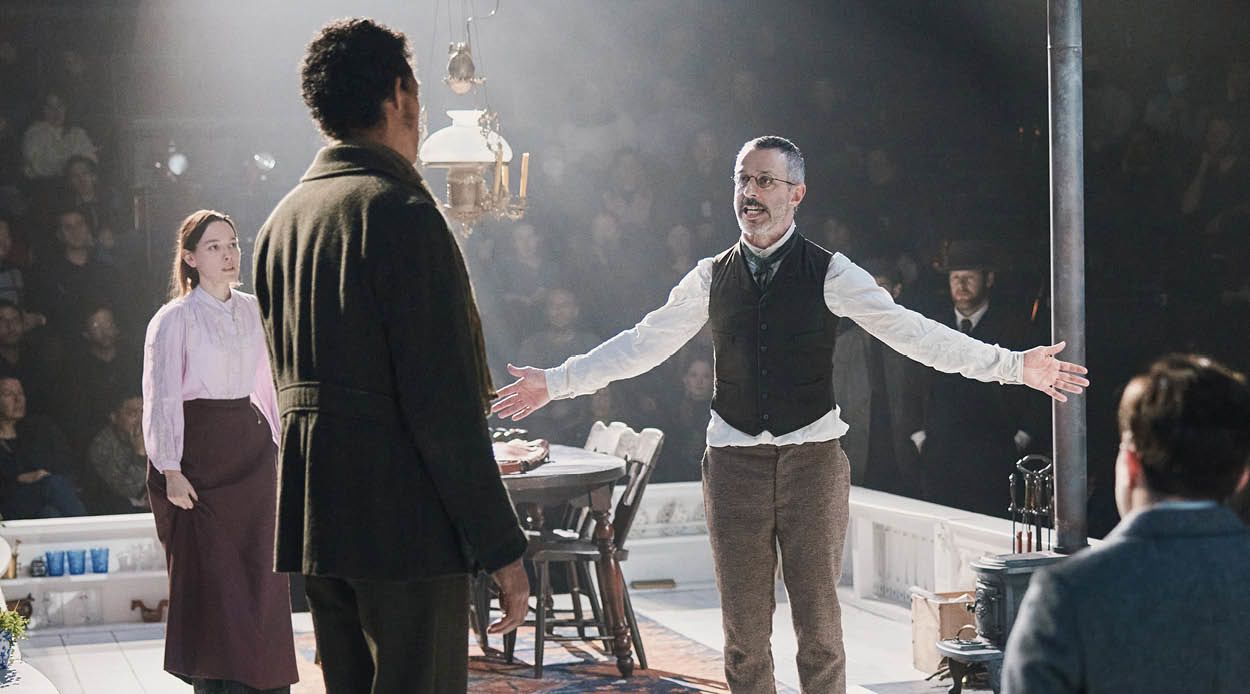
Jeremy Strong (standing right) stars in "An Enemy of the People" which debuted in March 2024 to critical acclaim.
Jeremy Strong (standing right) stars in "An Enemy of the People" which debuted in March 2024 to critical acclaim.
“I already have options on two projects where I would be leading,” he says. “One is called ‘Before This New Year,’ a coming-of-age story with a unique lens. The other is ‘Bullethead,’ a theatrical exposé of the National Rifle Association, and in particular the story of Harlon Carter Jr. — the mastermind who made the organization what it is today.”
Demar hopes to have both projects in production within the next year.
“While I’ve spent most of my career so far building relationships and raising money, I am an artist — a performer — at heart,” he says. “I feel very passionate about wanting to work more with writers, directors and actors and everyone else on the creative side. You get a taste of that as a co-producer, and certainly I want more of those types of experiences. It’s very exciting to be able to start something and build it from the ground up.”
Additional photos courtesy of PlayBill and Getty Images. Design by Elizabeth Hautau Karp.
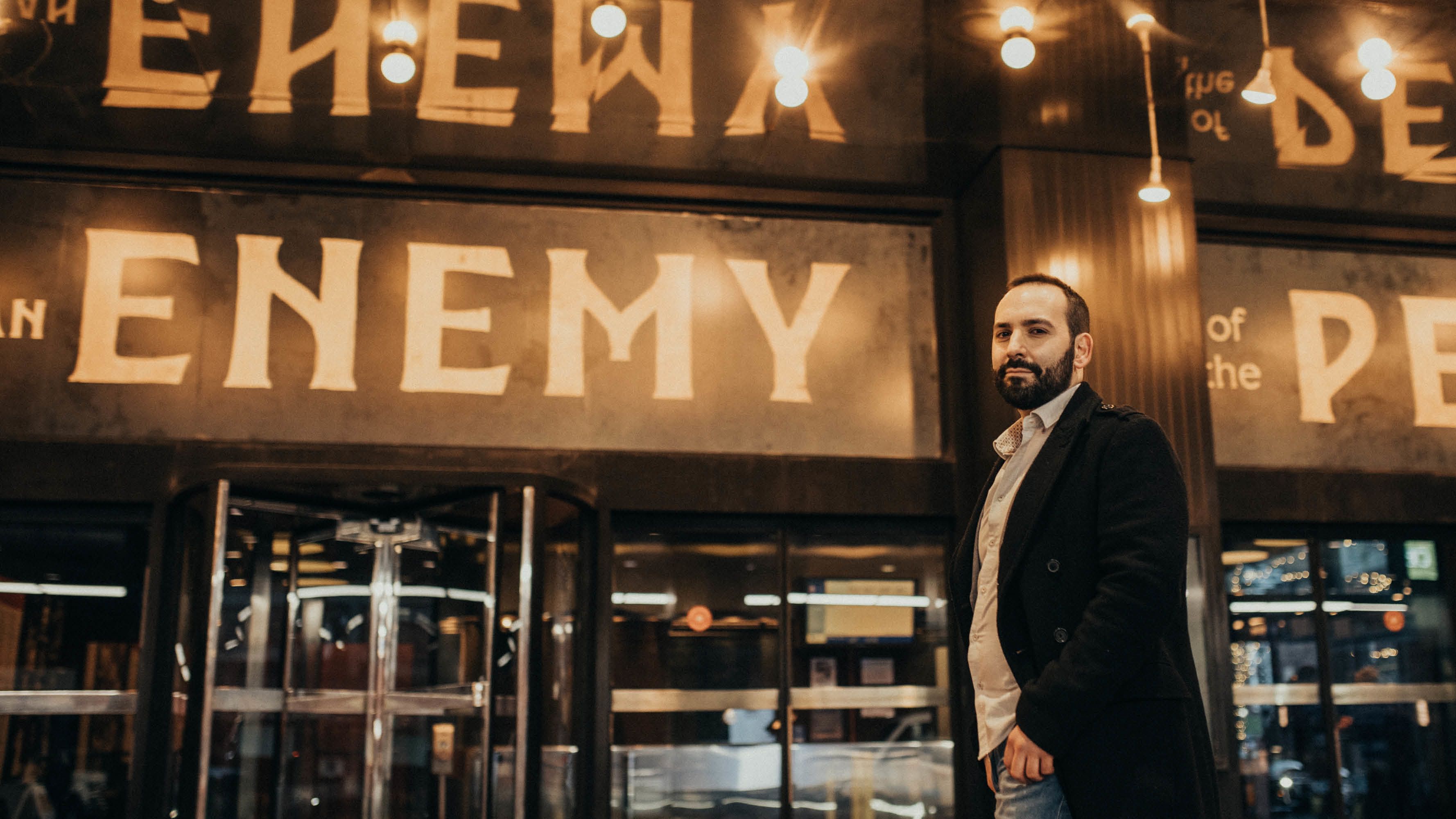

Want to know more?
Please visit Emory Magazine, Emory News Center, and Emory University.

